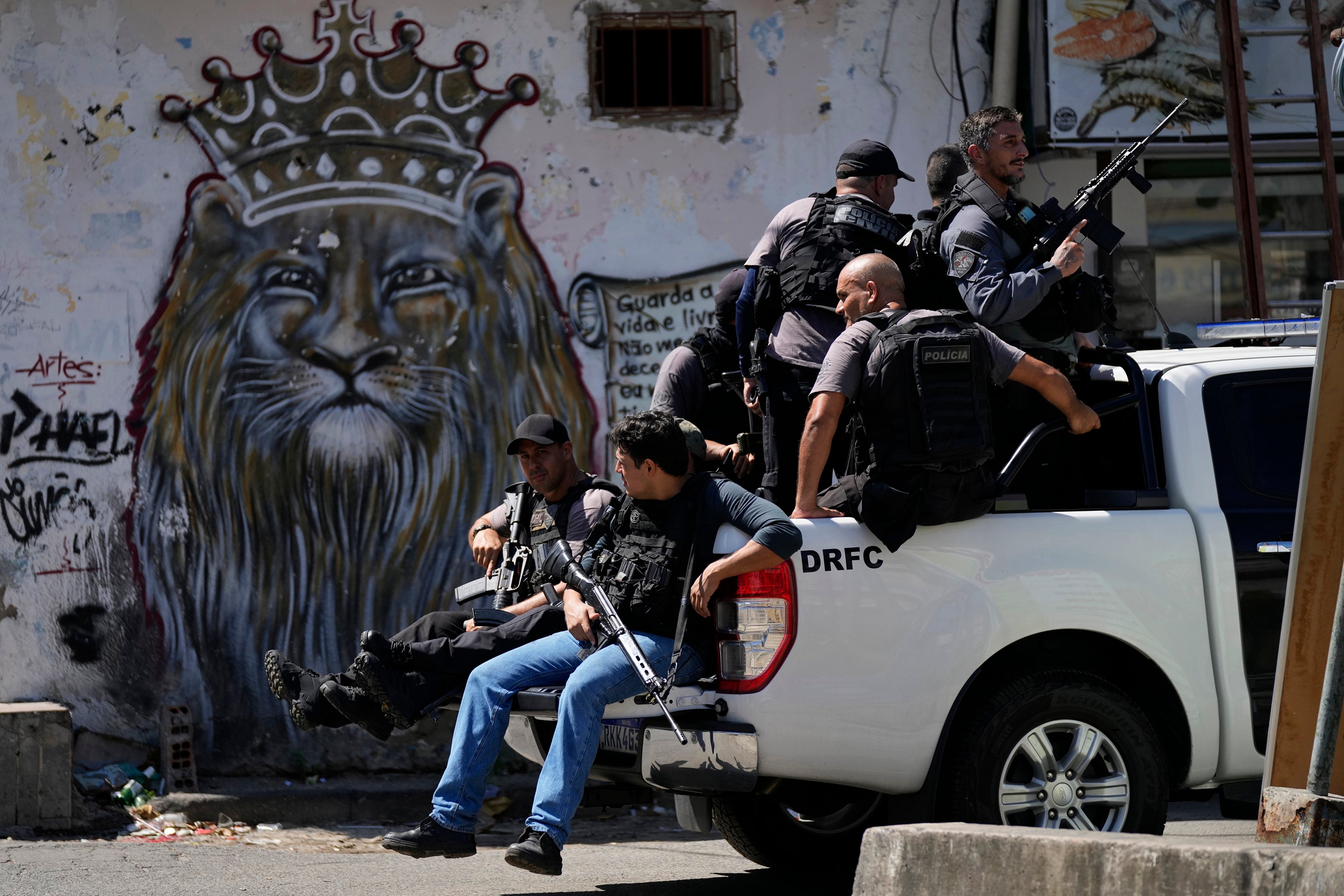Rio de Janeiro police move to regain control of some favelas
Some 1,200 police officers have been deployed to Rio de Janeiro’s working-class Jacarezinho neighborhood, marking the start of a state effort seeking to reclaim territory

Your support helps us to tell the story
From reproductive rights to climate change to Big Tech, The Independent is on the ground when the story is developing. Whether it's investigating the financials of Elon Musk's pro-Trump PAC or producing our latest documentary, 'The A Word', which shines a light on the American women fighting for reproductive rights, we know how important it is to parse out the facts from the messaging.
At such a critical moment in US history, we need reporters on the ground. Your donation allows us to keep sending journalists to speak to both sides of the story.
The Independent is trusted by Americans across the entire political spectrum. And unlike many other quality news outlets, we choose not to lock Americans out of our reporting and analysis with paywalls. We believe quality journalism should be available to everyone, paid for by those who can afford it.
Your support makes all the difference.Some 1,200 police officers were deployed to Rio de Janeiro’s working-class Jacarezinho neighborhood and its surroundings early Wednesday, marking the start of a state effort seeking to “reclaim territory,” authorities said. It remains unclear how the program will differ from a prior initiative along similar lines.
The operation, which began at dawn, is part of a permanent effort to increase police presence and improve services in at least two favelas, Jacarezinho and Muzema, according to Rio state's Gov. Claúdio Castro. More details will be released on Jan. 22, Castro said on his social media.
“We have started a great process of transformation for the communities in the state of Rio. We spent months developing a program that changes the lives of the population, bringing dignity and opportunity," Castro said. "The operations today are just the start of that change that goes well beyond security.”
On videos shared on the Rio police's official Twitter profile, officers could be seen with their rifles drawn cautiously entering the streets of the vast favela, where the city's deadliest raid took place last May, killing 28 people and injuring several others.
By noon on Wednesday, there were no reports of violent confrontations or shootouts.
Rio’s police have historically resorted to storming favelas and engaging in deadly shootouts as a means to disrupt criminal organizations and seek out targets. And for years, officers have faced repeated accusations of summarily executing suspects. Some residents of Jacarezinho alleged executions took place during the raid last May.
In its 2021 annual report published this month, Rio-based organization Fogo Cruzado, which compiles and verifies reports of shootings throughout the metropolitan region, highlighted that the number of incidents where three or more civilians are shot dead has increased. There were 61 such events in Rio’s metropolitan area, most of which occurred during police operations.
The idea of instead introducing permanent police units within Rio's favelas to shore up security and tackle drug trafficking echoes a prior initiative: police pacification units, known as UPPs.
The ambitious program launched in 2008 and aimed to install a state presence inside favelas ahead of the 2016 Olympics. Gangs control many favelas that are home to 1.7 million people in Rio’s metro region, according to the 2010 census.
The UPP program scored initial success expelling gangs, and won broad praise. But the expensive initiative expanded too far, too fast into dozens of favelas as state finances cratered, causing a devastating backslide that enabled gangs to recover some of their lost grip.
“There was no planning,” said Daniel Cerqueira a security analyst at the Brazilian Forum for Public Security. “Each community has its peculiarities. To find the right remedy and dosage for each one of them, you have to have a picture of the social and criminal reality of that place, and then start planning."
The program also suffered severe reputational damage after police were suspected to have tortured and killed a resident of the massive Rocinha favela who wasn't involved in trafficking, which prompted weeks of protests. Several police were eventually tried and convicted for the man’s disappearance.
In Jacarezinho, few residents were willing to speak on-record with The Associated Press on Wednesday, for fear of retaliation. Antônio Carlos Ferreira Gabriel, who twice led the local residents' association, shared his misgivings about the government's fresh promises to not just intensify policing but also improve public services.
“For God’s sake, we don’t want 1,200 police officers like we're seeing today," he said. "We want 1,200 social, cultural, sports, health, economic projects. That’s what we need.”